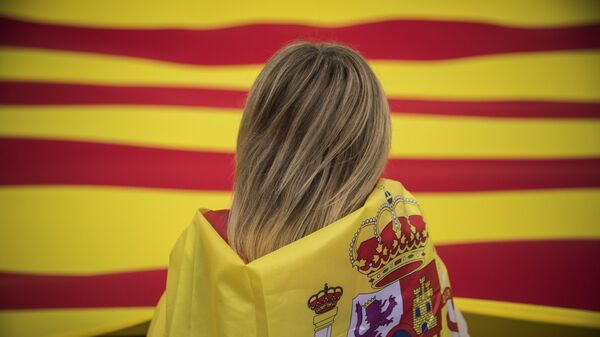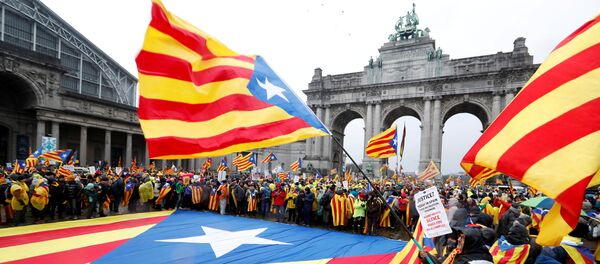Asked to comment on heated claims by Madrid of suspected Russian interference in the country's politics, and what they mean for Thursday's vote in Catalonia to elect a new parliament, Jordi Creus, director of historical magazine Sapiens, told Sputnik Mundo that the allegations are just "another method" by which the Mariano Rajoy administration is attempting to "thin out" the regional election.
"It is an absolute fantasy to say that Russia is interfering in these elections for the purposes of sowing political chaos in Spain. No one with half a brain believes this," he said.
For his part, David Minoves, director of the Escarre International Center for Ethnic and National Minorities, stressed that as things are, Thursday's Catalonia vote is taking place in "an exceptional climate that does not correspond to democratic norms."
In Minoves' view, Madrid's actions have provoked an "absolutely undemocratic situation" where some of Catalonia's leaders have found themselves in prison, with the rest exiled abroad. In this situation, while some of them are candidates, they "cannot make use of their civil and political rights; they cannot participate normally in the election campaign, resulting in a violation of the balance, and a lack of democratic guarantees," the political analyst said.
Creus agreed, pointing out that while "some candidates are given red carpet treatment, others can't even participate."
According to the political scientist, if the sovereigntists win, they will undoubtedly seek to further implement the independence process. The question, he noted, is in how this process will go, if the regional government remains under Madrid's direct rule. Accordingly, pre-election promises aside, the question is what politicians, even pro-sovereignty ones, will be able to do in reality.
Last month, Spanish officials accused Russia and Venezuela of trying to interfere in Catalonia's independence vote via "suspicious internet traffic" and fake news. Moscow called on Spain to present solid evidence of the very serious accusations.
Catalans are heading to the polls Thursday for regional elections pitting separatist and pro-Madrid forces against one another. 135 lawmakers are expected to be elected to Catalonia's regional parliament, and can either solidify the pro-independence movement or result in a victory for the unionists. Polls ahead of the vote show pro-independence parties in the lead, but possibly by not enough to win an absolute majority.
The views and opinions expressed by Jordi Creus and David Minoves are those of the experts and do not necessarily reflect those of Sputnik.





